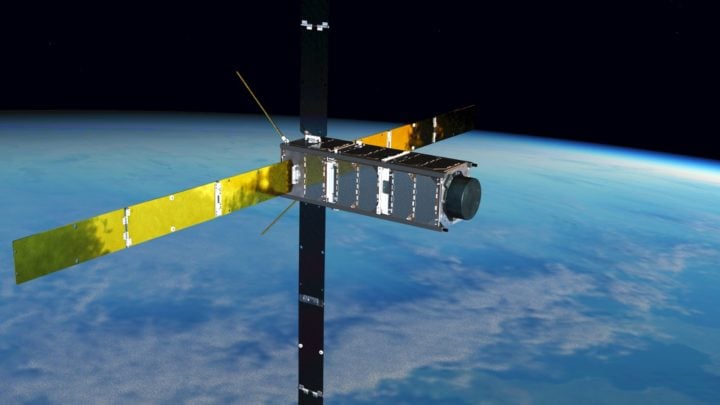Leading researchers from across The University of Manchester (UoM) have given their support to a global initiative endorsed by His Majesty King Charles III promoting the sustainable use of space.

A satellite, sustainable use of space – illustrative rendering. Image credit: University of Manchester
Signing on behalf of The University of Manchester, Dr Peter Roberts, Reader in Spacecraft Engineering, is one of more than 100 signatories of the Memorandum of Principles for Space Sustainability, a field to which UoM academics contribute to research and recommendations.
The principles echo the Astra Carta, a framework unveiled by the King at Buckingham Palace last month, which seeks to create and accelerate sustainable practices across the global space industry.
Both initiatives tie in closely with specialist research at UoM including On Space, a collection of thought leadership and analysis pieces highlighting the urgent need for greater sustainability in space.
The publication, produced by the University’s policy engagement unit [email protected], includes a powerful article by Dr Roberts on Very Low Earth Orbit (VLEO) satellite technology which reduces collision risk and radiation damage, as well as facilitates end-of-life deorbit.
Dr Roberts said: “I warmly welcome the opportunity to sign the Memorandum, recognizing the contribution from experts at The University of Manchester.
“The work we do on developing technologies to enable satellite operations in very low Earth orbits supports sustainability in space as satellites rapidly decay from orbit at end of life, completely avoiding the production of space debris – a key component of the Memorandum of Principles for Space Sustainability.
“Amongst other areas of ongoing activity, we have researchers examining the dark and quiet skies movement which is working incredibly hard to minimise radio noise that would otherwise create problems for ground-based radio astronomy, aspects of in-orbit servicing and manufacturing, another critical aspect of minimising the impact of space activities.
“The University of Manchester is proud to be actively involved in the global efforts to make space more sustainable. We look forward to continuing our work with other institutions and industrial partners around the world to make space more sustainable for future generations.”
Source: University of Manchester

